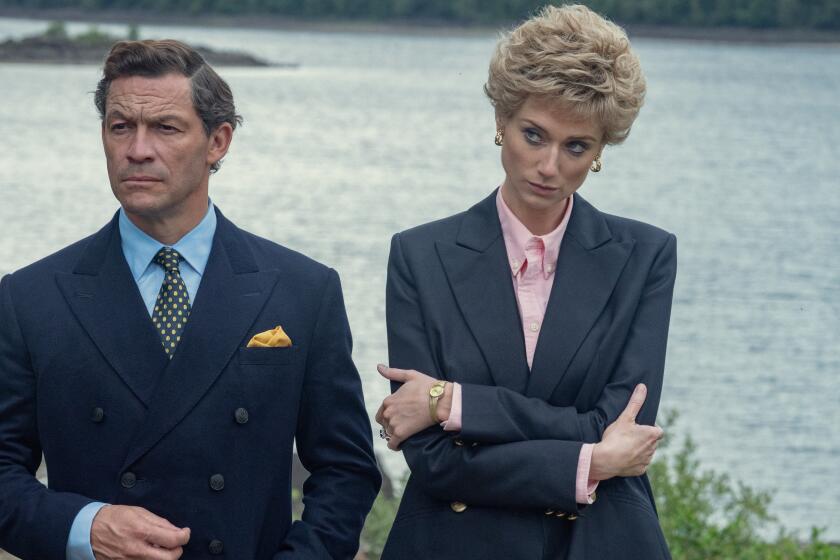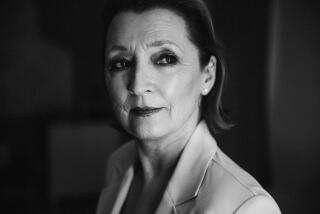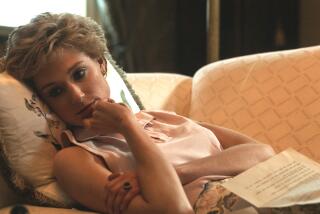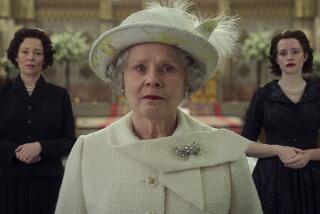‘The Crown’ brings the story of the royal family — and Princess Diana — to a close
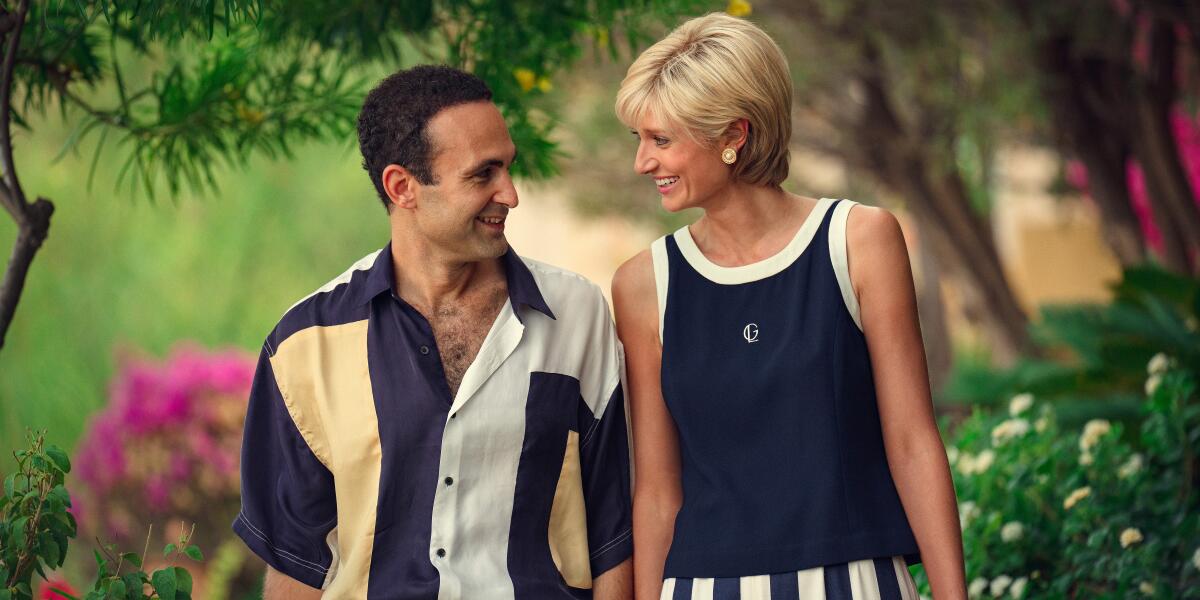
Suzanne Mackie has had a royal view of “The Crown” for the last decade. As executive producer, she has consulted with creator Peter Morgan on every facet of the Netflix drama since Day One. “I speak to him about 450 times a day,” estimates Mackie, via video call from London.
Early on, Morgan assembled a small group of trusted colleagues, including Mackie and producer Oona O’Beirn, who met with him daily ever since. Morgan wrote or co-wrote every episode of the series, but “he doesn’t go away and write an episode and deliver it back six weeks later,” Mackie notes. “You’re with him pretty much every sentence of every scene he writes. He’s so precise and such an extraordinary storyteller, and the way he works is so confident and smart, but he trusts us to push back, and to say, ‘That doesn’t feel right.’ We have very much been at the heart of the show from the beginning.”
And they knew, even then, where it would end.
“The Crown’s” sixth and final season is split into two parts. Part 1 dropped Nov. 16; Part 2 will launch Dec. 14, as if the audience will require a break to absorb the first four episodes before moving on to the final six. And they are shattering, re-creating Princess Diana’s final weeks, from family life to philanthropy to her relationship with movie producer Dodi Fayed (played by Khalid Abdalla). “What Elizabeth Debicki does [as Diana] in those four episodes is really astonishing. She can go from being really emotional and raw and vulnerable to being full of charm, with this wonderful, caring aura around her.”
As the Netflix drama revisits a sordid chapter in royal history at an awkward moment for the monarchy, the Windsors’ allies are coming out against it.
Morgan also wanted to focus on the Al-Fayeds, often viewed as a footnote in the story of Diana’s death. In the fractious relationship between Dodi and his billionaire father, Mohamed Al-Fayed (played by Salim Daw), Morgan found the makings of classic drama: “Be careful what you wish for, the hubris, and flying too close to the sun,” Mackie notes.
Mohamed was desperate for acceptance by the British establishment and pushed Dodi to achieve that aim for him. “Salim was able to recognize a man that was incredibly complex and not always sympathetic, and sometimes very unsympathetic but nevertheless a life force,” Mackie says. “And Salim is a force of nature as well; he was probably the most popular person on set. And he loved Al-Fayed; he felt so deeply for him. There’s such a broken man at the end of it all.”
When Mackie was talking with Abdalla about the role of Dodi, “He said, ‘Dodi died at the same time as Diana, and yet we know nothing about him, and I want to be the person that brings him to life and gives him a proper, fleshed-out character.’ And he did. Khalid’s a very thoughtful man, he’s a charming man, and he’s also incredibly wise. He has great stillness, he analyzes everything really meticulously, and he found Dodi. It’s a beautiful, tragic portrayal.”
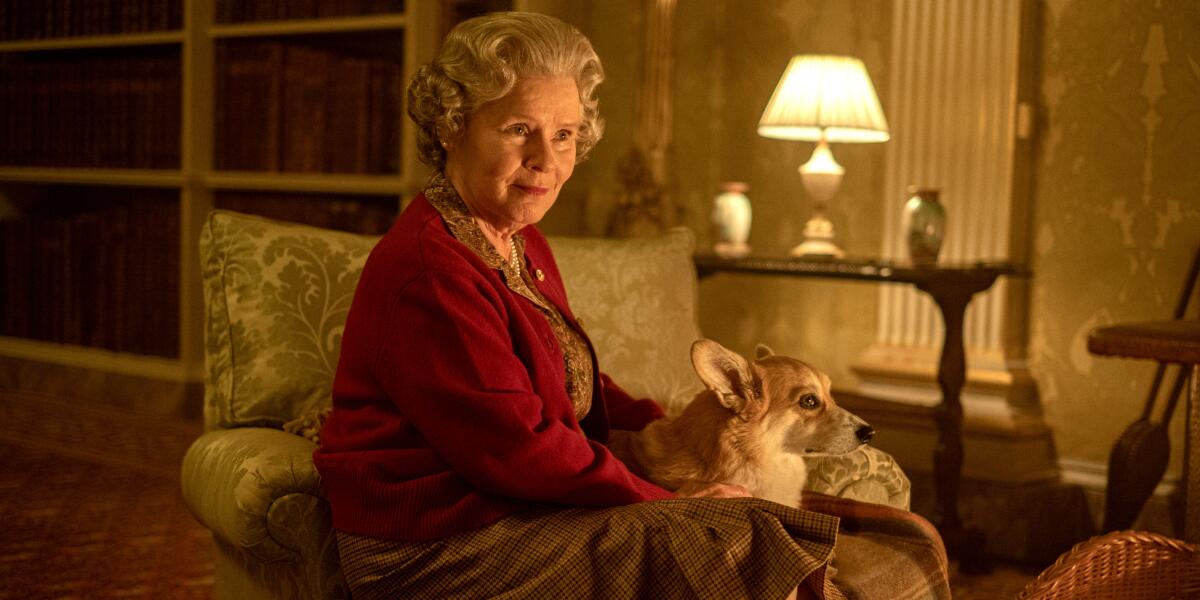
The show mercifully does not show the crash, but it addresses the aftermath, including a bold choice to have Diana speak with Prince Charles (Dominic West), and then the queen (Imelda Staunton), after her death. Mackie remembers the moment she received those pages from Morgan, while she was overseeing a shoot in Spain. “I had to walk around the block two or three times, because I found it so moving,” she says. “I could feel there was something very organic there. It could have felt gimmicky or tricksy or a little bit pleased with itself. But the force of Diana’s personality meant she had to still be in the walls and atmosphere and within the heads and hearts of our characters, to the point where the power of her meant that she was manifested. It’s as complex and simple as that.” A half-hour after receiving Mackie’s enthusiastic response, Morgan sent her a scene in which Dodi’s spirit speaks with his father.
“As a dramatist, Peter’s always drawn to fathers and sons; that presents endless possibilities to him,” Mackie says. Sisters are equally fascinating. “Lesley Manville’s Margaret was passionate and mercurial and gorgeous and frustrating and ultimately completely lovable, which is very much what Lesley’s like, just sheer incredible talent.” And with Imelda Staunton as “The Crown’s” last queen, “you always get wit and charm as well as very serious depth and emotional range. She’s always on time, she knows her lines, she’s so in the character as the queen, and yet she’s a real team leader. Her behavior was exemplary every day.” The two sisters have often clashed yet are deeply bound to each other. The upcoming season will give them their final journey together as well.
The last six episodes are not yet available to view, but Mackie says the series will end with the 2005 wedding of Prince Charles and Camilla (Olivia Williams). Then the curtains will close on Morgan’s particular view of this famously inscrutable family, assayed by so many indelible actors. “They’ve become great friends, and they really support each other, and that’s the way it’s been all the way through,” Mackie says of the revolving cast. “It’s like a company. Everyone believes in what they’re doing. I’ve never worked on something that generates such pride.”
More to Read
From the Oscars to the Emmys.
Get the Envelope newsletter for exclusive awards season coverage, behind-the-scenes stories from the Envelope podcast and columnist Glenn Whipp’s must-read analysis.
You may occasionally receive promotional content from the Los Angeles Times.
